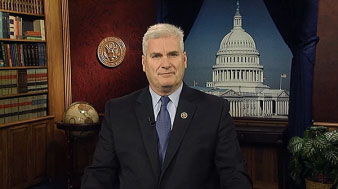
Last year, Google showed off WaveNet[1], a new way of generating speech that didn’t rely on a bulky library of word bits or cheap shortcuts that result in stilted speech. WaveNet used machine learning to build a voice sample by sample, and the results were, as I put it then, “eerily convincing.” Previously bound to the lab, the tech has now been deployed[2] in the latest version of Google Assistant.
The general idea behind the tech was to recreate words and sentences not by coding grammatical and tonal rules manually, but allowing a machine learning system to see those patterns in speech and generate them sample by sample. A sample, in this case, being the tone generated every 1/16,000th of a second.
 At the time of its first release, WaveNet was extremely computationally expensive, taking a full second to generate 0.02 seconds of sound — so a two-second clip like “turn right at Cedar street” would take nearly two minutes to generate. As such, it was poorly suited to actual use (you’d have missed your turn by then) — which is why Google engineers set about improving it.
At the time of its first release, WaveNet was extremely computationally expensive, taking a full second to generate 0.02 seconds of sound — so a two-second clip like “turn right at Cedar street” would take nearly two minutes to generate. As such, it was poorly suited to actual use (you’d have missed your turn by then) — which is why Google engineers set about improving it.
The new, improved WaveNet generates sound at 20x real time — generating the same two-second clip in a tenth of a second. And it even creates sound at a higher sample rate: 24,000 samples per second, and at 16 versus 8 bits. Not that high-fidelity sound can really be appreciated in a smartphone speaker, but given today’s announcements, we can expect Assistant to appear in many more places soon.
The voices generated by WaveNet sound considerably better than the state of the art concatenative systems used previously:
Old and busted:
https://tctechcrunch2011.files.wordpress.com/2017/10/hol_before.wav[3]New and...
Read more from our friends at TechCrunch
(Emily Larsen, Liberty Headlines) Following mining pushback from environmental groups and hasty actions in the final weeks of the Obama administration, Rep. Tom Emmer (R-Minn.) introduced the Minnesota Economic Rights (MINER) in the Superior National Forests Act, which aims to restore mineral rights in attempt to boost the economy in the northern part of his state.

Tom Emmer/IMAGE: YouTube
The bill is a response to ongoing controversy regarding mining lease applications near the Boundary Waters Canoe Area Wilderness, close to the border of Canada. About 250,000 outdoor enthusiasts visit the 1.1 million-acre wilderness area each year.
“In their final hours, the Obama Administration enacted a series of harmful and reckless policies, which have hindered our ability to utilize our state’s abundance of natural resources and bring jobs to a part of our state that badly needs them,” said Emmer in a press release.
One of the final actions of the Obama administration in December was to reject a company’s request to renew a mining lease next to the Boundary Waters Canoe Area Wilderness, and placed a two-year mining ban on 234,000 acres of public land. The MINER Act would require approval from Congress to prohibit mining on federal lands.
“The Boundary Waters is a natural treasure, special to the 150,000 who canoe, fish, and recreate there each year, and is the economic life blood to local business that depend on a pristine natural resource,” said former Agriculture Secretary Tom Vilsack and former Interior Secretary Sally Jewell in a joint statement at the time of the denial. “I have asked Interior to take a time out, conduct a careful environmental analysis and engage the public